Need Gear? Find it Made in Philadelphia.

Text by Dan Halma and Brendan Menapace. Images by Charles Shan Cerrone.
Over the last two decades, the DIY community of gear designers and builders has grown exponentially. This is due to the endless resources made available by the boom of the Internet, which have allowed many boutique manufacturers – like DiPinto Guitars – to eventually see their wares grace the stages of touring bands, or featured in magazines and sold in large retail outlets.
Philadelphia is home to several of these builders. The city’s music community and affordable space allows for anyone with an idea and the initiative to get started building and experimenting with their musical creations, whether they’re from pre-packaged kits or original designs
Walking up to the small brick building tucked behind the Piazza in Northern Liberties, you can hear the sax solo from Bowie’s “Young Americans” flowing through the walls. Inside, Fran Blanche has created her home base (and home) for designing and manufacturing guitar pedals as Frantone.
“The jukebox is a little loud,” she says, pointing to the vintage jukebox in the corner. “I like it loud. It goes a lot louder than that.”
Looking around the space, it’s pretty clear that she does, in fact like it loud, or at least likes a lot of sound. Shelves on every wall are covered with vintage radios, stereo equipment, speakers and amps. Two huge tables are covered in pieces of pedals, soldering equipment and general clutter. She quickly assures that there is, in fact, a bed in the small space that doubles as her living quarters.
Another shelf is lined with electronics manuals and textbooks. That shelf is probably the most representative of Blanche’s career of making pedals.
“I taught myself electronics while I was working retail,” Blanche says. “I spent a decade in retail management, pretty much right out of my teens.”
She moved from job to job in search of better hours and better pay, selling everything from shoes to videocassettes and framed pictures. Eventually, she ended up working for a rental business, which required her to repair different machines, like popcorn machines and chainsaws.
It was through her exposure to different jobs and affinity toward tinkering that Blanche landed where she is now. She took the time to immerse herself in the practice of creating guitar pedals by hand, despite having no formal background in electronics. She operated on her own interest and the things she’s learned over the years.
During those years, she went through ups and downs with Frantone. After stepping away in 2007, she brought the business back this year with the knowledge of the industry and how she can navigate it.
While Blanche is a veteran of the business with a down-to-earth (verging on pessimistic) outlook—she sees survival as the mark of success—others are just getting their toes wet in the gear-building world.

Guy Juravich is possibly the polar opposite of Blanche. While Blanche is soft-spoken, humble and gives the impression that she’s content to spend her days tinkering in her workshop/home, Juravich has a bounce to his walk, a salesman’s projection to his voice and a lot to say.
Juravich invented the Spinbal, a device that allows drummers to spin their cymbals for extended periods of time. That creates longer sustain, allows kinetic cymbal designs, increases the lifespan of cymbals and makes drummers just look cool. After trying numerous ways to get the cymbals to spin, he had his “eureka” moment after a literal run-in with a skateboarder.
“I was walking home from Whole Foods here with my groceries,” he says. “This skater literally knocks me over. He was on the sidewalk. It literally spread my groceries everywhere, and I looked at him and I had this a-ha moment: The wheel was still spinning.”
After that, he realized that he could fit simple skateboard bearings into a 3-D printed bushing, a small metal tube to reduce friction of an axel, to allow cymbals to spin for a long time. Minutes, even.
He had this idea after playing in a touring burlesque show. One show in Texas, with a world-class lasso artist, particularly impacted his future of invention.
“Packed house, big night,” says Juravich, explaining how on that night, he would spin his cymbals every chance he got. And at the end of that night, as the band was being introduced and receiving the typical polite clapping, something different happened.
“This was a standing ovation,” he remembers. “It was like the end-of-a-movie slow clap. Jaws were down. Audience members were, like, screaming about my performance.”
So he got to thinking? What did he do differently at this show that he hadn’t done at previous shows? Was this just a good crowd?
“I spun my cymbals, like, aggressively, the whole time,” he realized. “Thanks to Dr. Lasso. Just a weird fuckin’ experience. So then I started doing it for the rest of the tour and the reaction was the same in every town.”

For Brian Hamilton, paving the path to building his own pedal company was rooted in more practical means: a lifelong journey of not finding the sounds he wanted from other manufacturers’ gear.
“I play keyboards, so right off the bat, I’ve been at a disadvantage for buying pedals, because most pedals are not made for keyboardists in general,” he says, sitting with one leg tucked up under the other, head-to-toe in black clothing contrasting against the bevy of colorful pedals lining a corner of the workspace in front of him.
The office for Hamilton’s company, smallsound/bigsound, is nestled in the third floor of a warehouse space in Olde Kensington – a spot Hamilton, well-known for his keyboard role in the band Cymbals Eat Guitars, has shared with his partner Gabrielle Silverlight, of ZOLA jewelry, since moving to Philadelphia seven years ago. Oscilloscopes, drills, soldering irons and several shelves of electronic parts wrap around the length of Hamilton’s desk and the shelf above it. On the floor nearby is a small guitar amp, another on top. He plans on opening a storefront in his home turf of Fishtown in the future.
“I was playing in a band in college, and I was super into Boards of Canada and My Bloody Valentine and bands that had a similar warbly aesthetic,” he says. “And I played mostly electro-mechanical keyboards like Rhodes and Wurlitzers, so I really wanted to get that out of those keyboards, and I couldn’t figure out how to do it [with other manufacturers’ pedals], so I thought that I would try to figure it out myself.”
It was at his time at Berklee College of Music that he started experimenting with electronics—first by circuit-bending following books by bending icon Reed Ghazala, and then by learning how to read schematics and understanding what components do what in a circuit until he felt confident experimenting with his own designs. The first design was the Team Awesome, a bass fuzz with a clean blend designed with the bassist of Hamilton’s first serious touring band, Bon Savants, in mind.
Soon, Hamilton’s products ended up on the pedal boards of nationally recognized artists like Bon Iver, Pretty Lights, Dinosaur Jr., AWOLNATION, The Tallest Man on Earth, Saosin, Modest Mouse, Brand New and Philly’s own Modern Baseball and Mumblr.
“I’ve noticed that I haven’t really burrowed my way into one particular genre or niche,” he says, referring to the variety of genres represented in his clientele. Considering his other job is as a touring musician, he’s happy to point out that the crossover between the two is more than just a practical sense.
“Some people know the band and they’re like, ‘Oh, I really like your band, that’s how I found out about your pedals,’” he says. “But then it’s really nice when the reverse happens … like you get a tour because someone knows about the pedals.”
With the buzz that’s been building around his company and his band over these years, it’s not surprising that when he opened pre-orders for Pretty Years, a limited-edition distortion pedal in honor of Cymbals Eat guitars’ upcoming album of the same name. The first batch sold out in two hours. The second batch followed suit.
But Hamilton doesn’t consider any of these events as defining moments in his career as a builder or musician.
“There’s so many ways of being successful and there’s little levels of success,” he muses.

He’s right. Hamilton is happy being able to split his time creating exotic pedals and touring with his band. For some, like Blanche, success is keeping the lights on so you can see what you’re constructing in your cozy little space.
“That’s what business is: pearls and crap,” Blanche says. “There are those fleeting moments of incredibleness, and then just periods of … shit, you know?”
One has to learn to take the good and the bad.
“And then every now and then you just have an awesome day,” Blanche continues, “and then weeks later you’re pulling teeth.”
For Juravich, it’s creating something that changes the way drummers think of creating sounds and protecting their equipment.
“The success isn’t how you corner the market,” Juravich says. “It’s how do you change the market? Change the market. This is why I feel like it’s a success.”
Comments are closed.
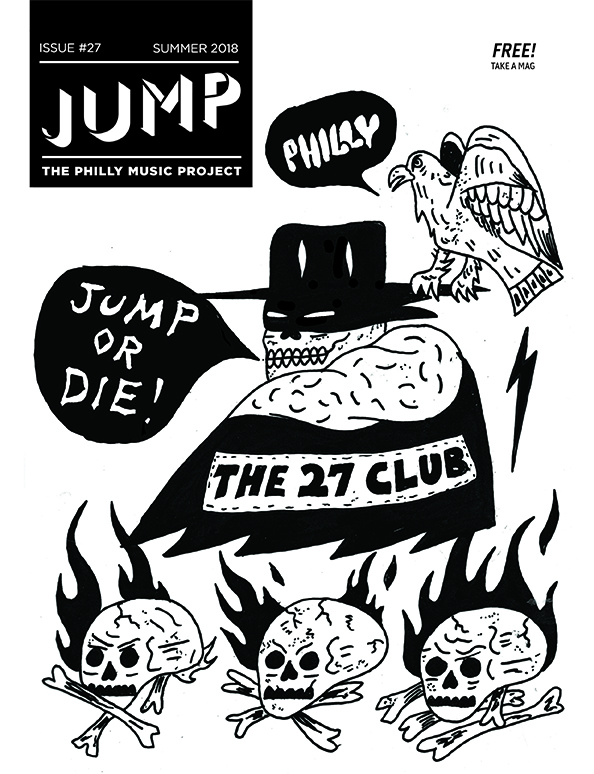
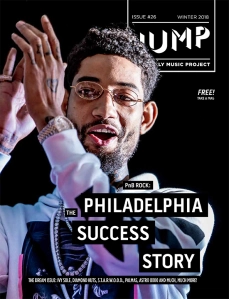
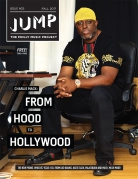


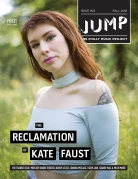
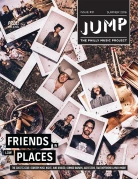



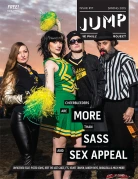
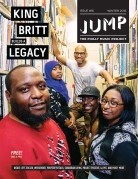


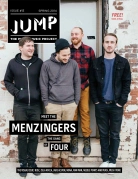


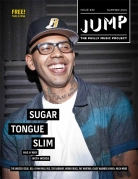
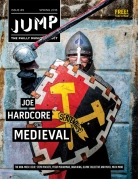
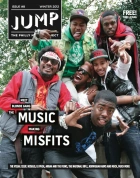
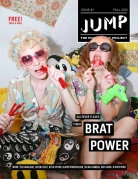









very nice